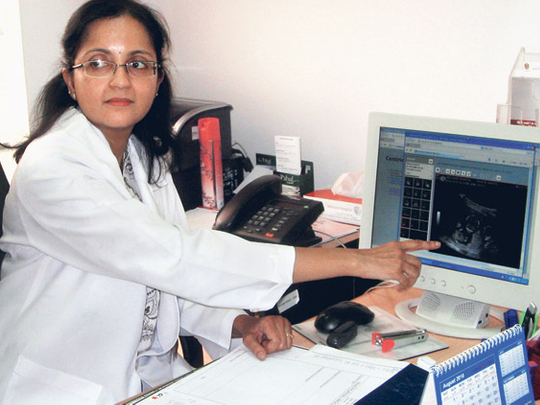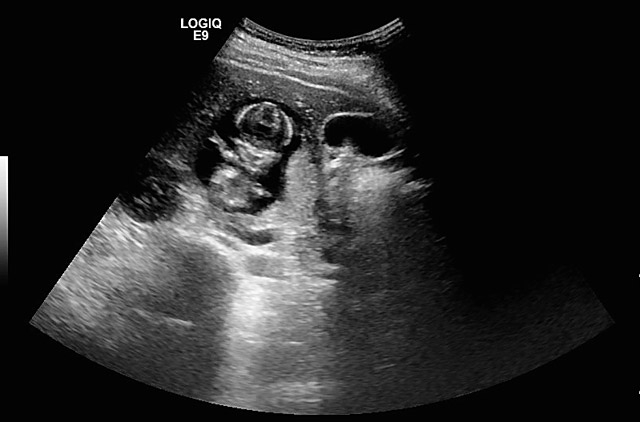
Dubai: An embryo found attached to a woman's liver and deriving its nutrients from the organ had to be terminated to save the mother's life.
The woman was bleeding heavily internally.
The mother-to-be had gone to a number of clinics for pregnancy check-ups, but doctors could not detect an embryo during normal ultrasound examinations.
Doctors said the woman's case was very rare. Only about 14 such pregnancies have been recorded worldwide.
Welcare Hospital consultant gynaecologist Dr Susheela Anil Kumar told Gulf News: "We could not find the baby and wondered where it could be."
Then specialist radiologist Dr Prosper Aduh slowly shifted the scan probe, the other way, towards the liver. "It was sitting there," Dr Kumar said. "We could hear its heartbeat. We were all so shocked."
The doctor said this was a very rare pregnancy, with a 0.03 per cent probability of occurring.
A pregnancy which occurs outside the womb is called an ectopic pregnancy. The most common site for an ectopic pregnancy is within one of the fallopian tubes, through which the egg passes from the ovary to the uterus.
In rare cases, ectopic pregnancies can occur inside the ovary, in the stomach area, or the cervix. But a pregnancy in the liver — called hepatic ectopic pregnancy — is even rarer.
In this case, the embryo attached itself to the liver, a very rich source of blood.
Protected
The baby was protected because it was within the placenta — but it does not have the usual protection of the womb. The baby was also more at risk in the abdominal cavity.
"It was already detaching from the liver," said the doctor. "Such babies usually have no future [and rarely survive]."
The foetus was 13 weeks old but had to be terminated, doctors said.
Most babies in extra-uterine (out of the uterus) pregnancies die within a few weeks. The baby usually does not develop at all in ectopic pregnancies.
In this case, the mother was bleeding severely and it could have become very dangerous for her.
"The next day she would have collapsed," the doctor said.
Specialist general surgeon Dr J.C. Mathias was called in and his team surgically removed the baby.
This was the young Indian expatriate's first pregnancy. The doctor said she did not wish to be interviewed, but her husband was very happy that she was well.
The doctor said that if the baby had been found earlier, at, say, less than six weeks into the pregnancy, then there were injections which could help absorb the foetus.
Dr Kumar said she has delivered thousands of babies in her 20-year career, but this case was unique.
Medical precedence: Survival of babies rare
There are only four reported cases worlwide of babies who survived after being attached to the mother's liver. The last one was in South Africa in 2003, BBC online reported.
A liver specialist who helped deliver the baby called the child a "miracle baby'. Doctors found a small "window" where the amniotic sac connected with the outside of the liver, where they were able to go in to deliver the baby.
The baby was born after specialists performed a difficult operation to deliver her. She had to be placed on oxygen after her birth, at which time she weighed a healthy 2.8kg, and was soon breathing without assistance. Most babies in extra-uterine (out of the uterus) pregnancies die within a few weeks.
Do you know someone who has gone through a similar pregnancy? How did they cope?













